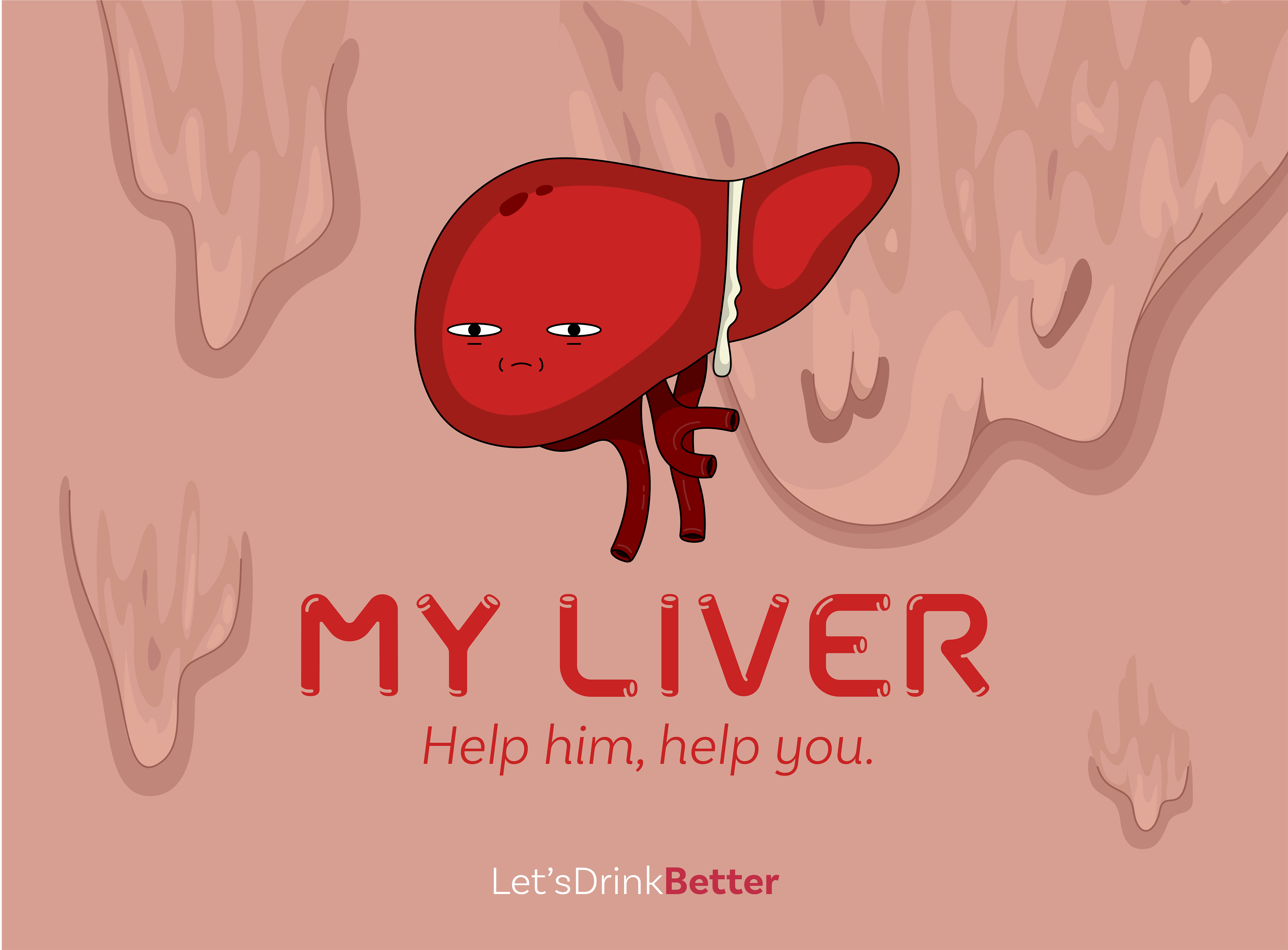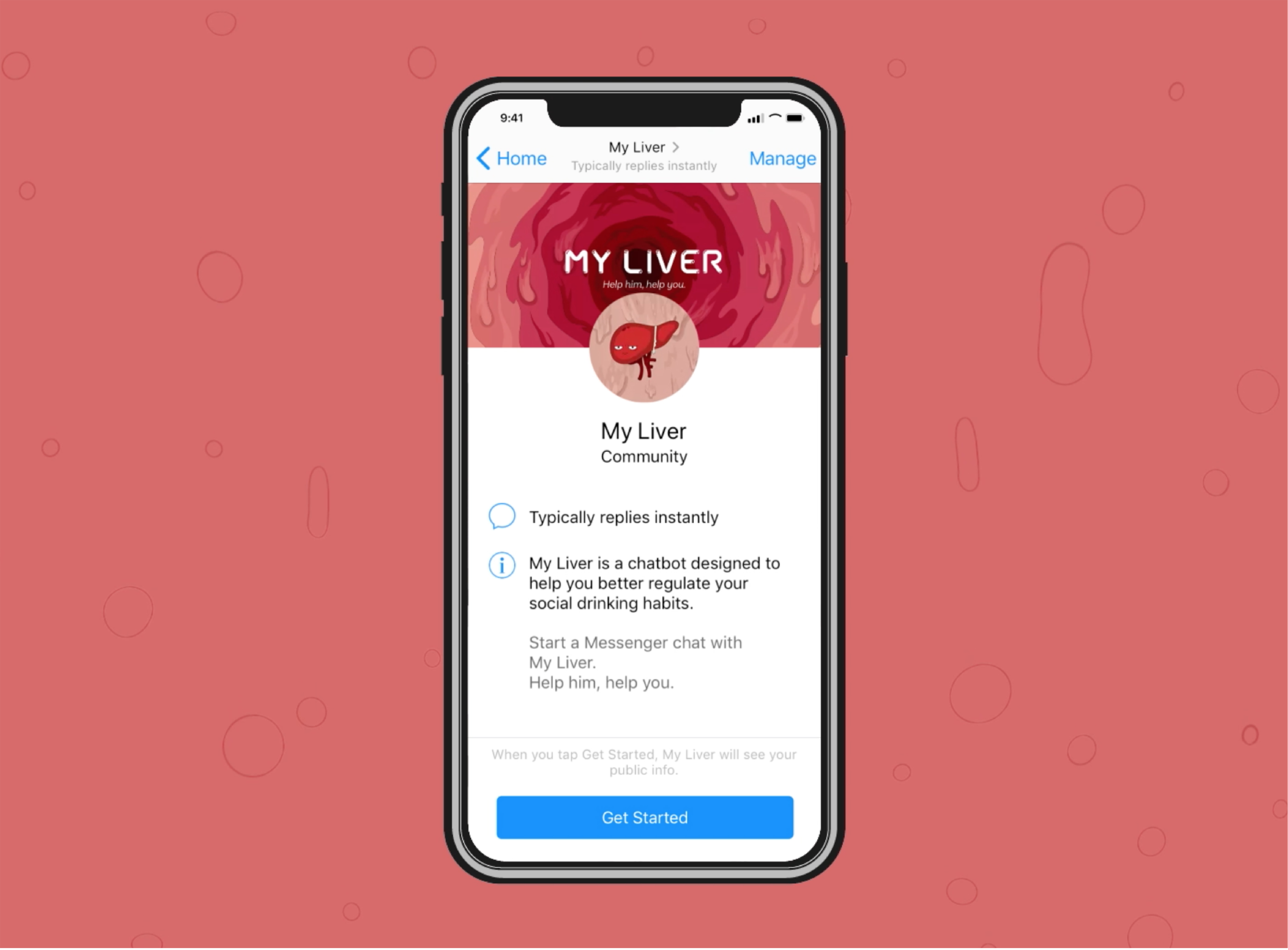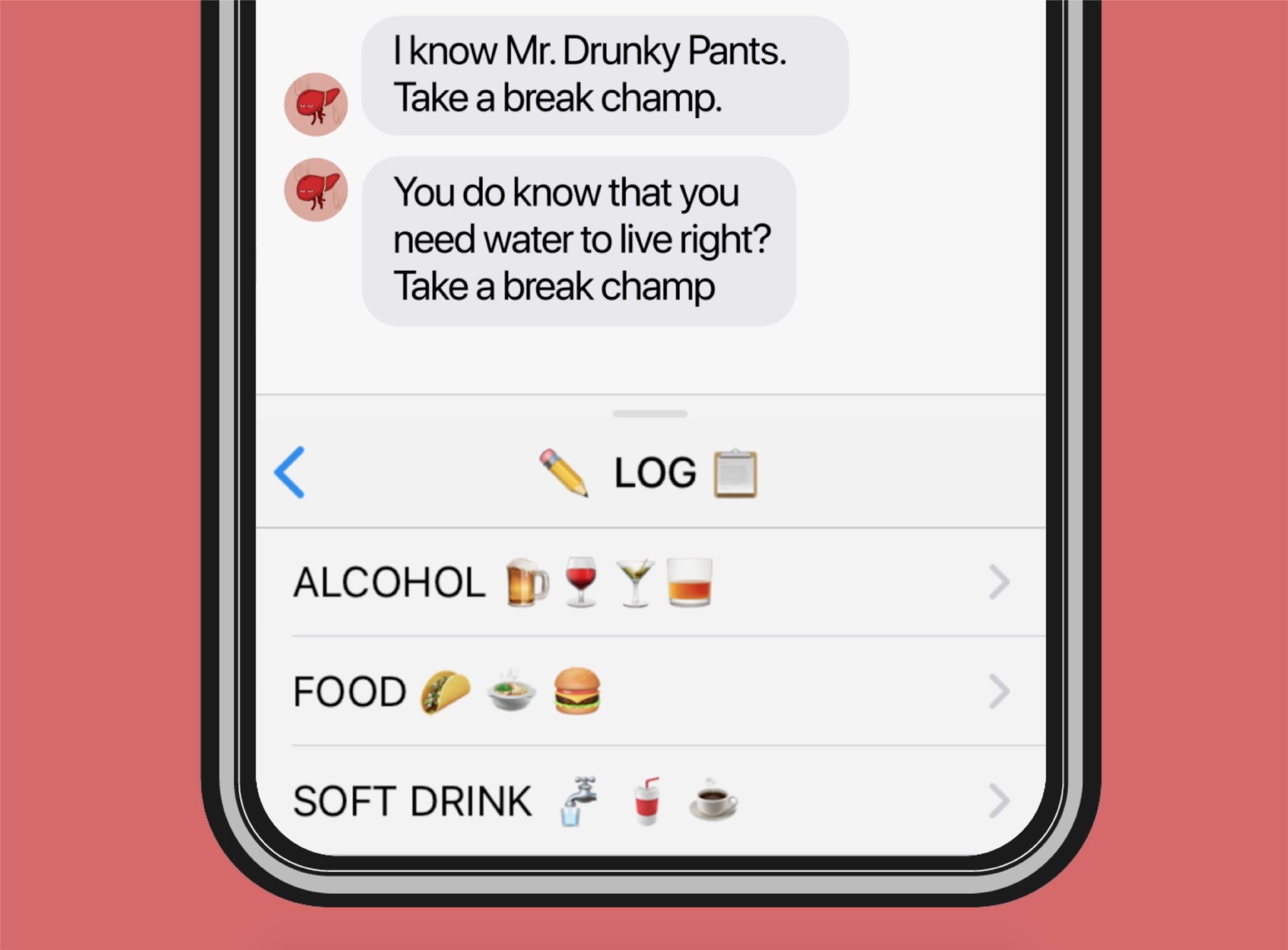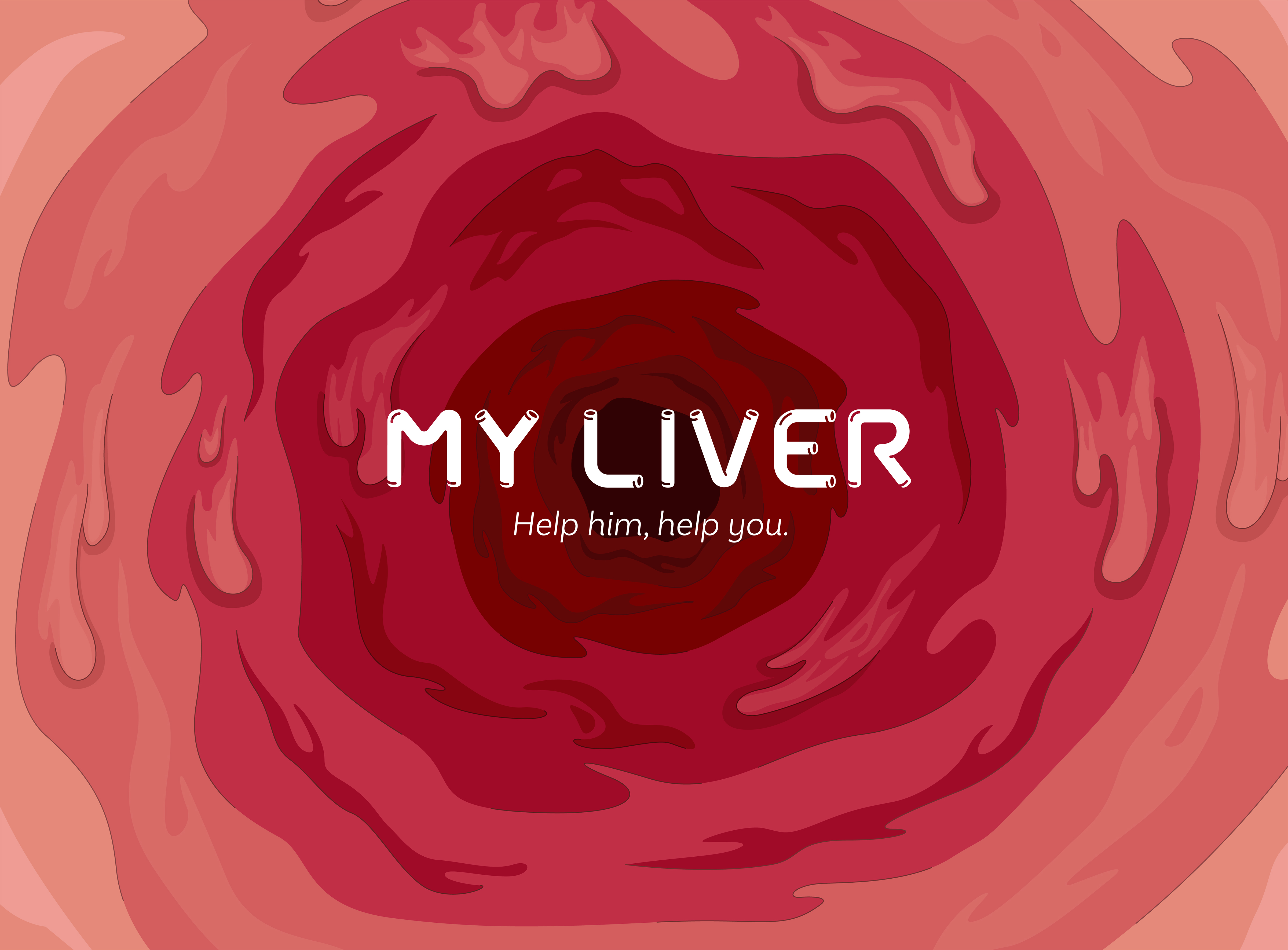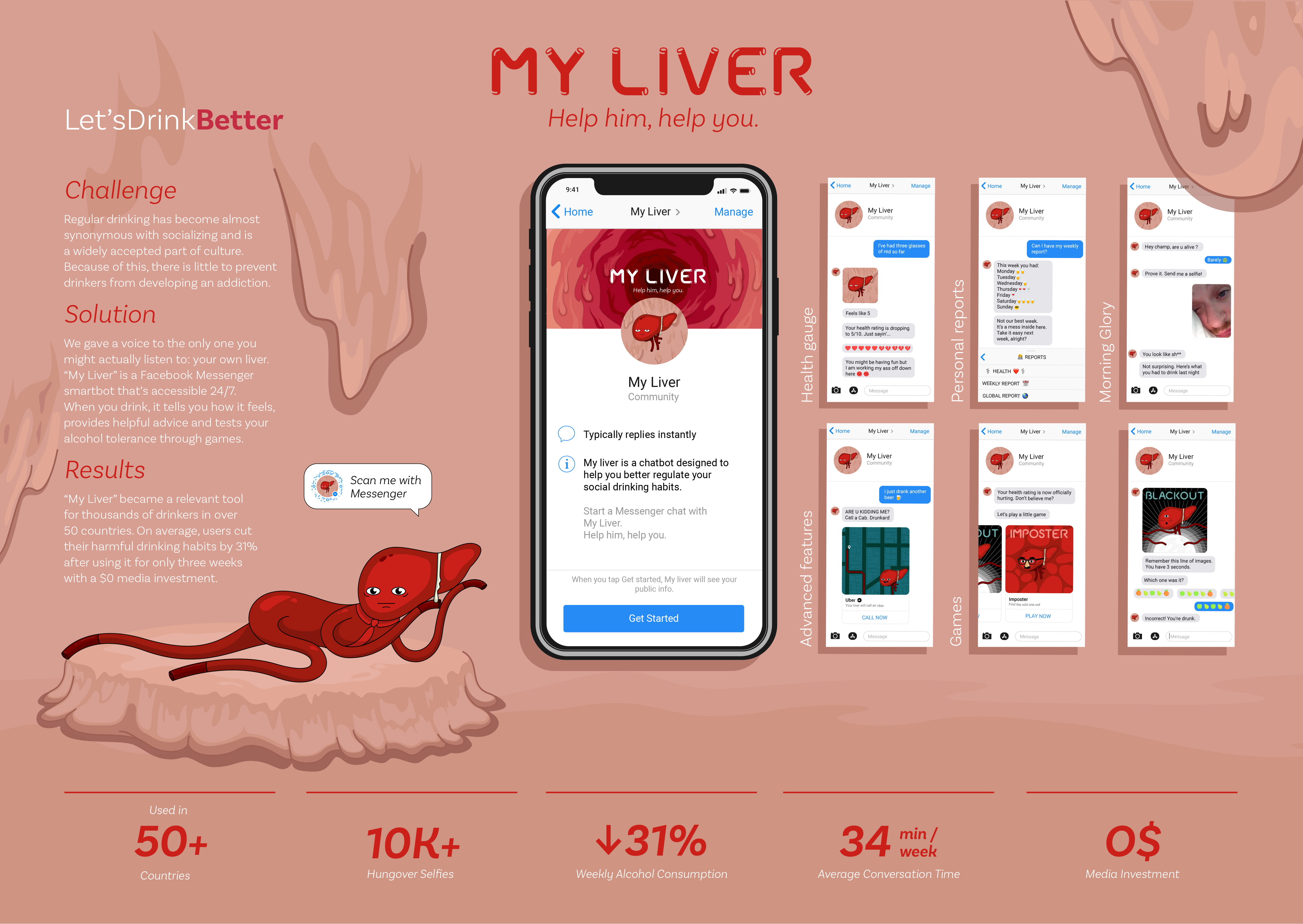2018 Winner
My Liver
Let's Drink Better
Silver Digital AOY: Bleublancrouge
Let's Drink Better
My Liver
The Goal
Alcohol holds the spot for the third most common preventable causes of death, just after smoking and high blood pressure. In many developed countries, one underestimated cause of increase in alcohol consumption is social drinking. The problem with that drinking behaviour is that it is socially accepted or even encouraged. That behavior covers up the risks for drinkers of developing an addiction. To raise awareness about the problems with social drinking and to help a new generation of consumers drink more responsibly, Let’s Drink Better, a Canadian foundation, wanted to highlight the signs of addiction and help chronic drinkers make better decisions proactively.
The Target
Almost 30% of 18 to 34 year olds are heavy drinkers; consuming five or more drinks on one occasion, 12 or more times a year. It puts the individual's health at serious risk – risk that can be reduced by simply reducing the number of drinks and/or the number occasions.
The Insight and Strategy
With our target being 18 - 34 year olds the brand needed to connect with them in a way that would not only make a difference but one that would closely mirror an existing habit. The brand’s key target use messaging apps daily as a primary way to keep up with friends. What do quantifying and messaging have in common? They both put the user center-stage (or as the target might say "it is about me"). The brand’s messaging service would have to be very personal, so personal that it would feel like as if it was a part of them.
The Plan
If one was to cut back on their drinking, first start by keeping track of every drink one consumes. To facilitate this, the agency gave a voice to the only thing who remembers every drink consumed and every hangover survived: the liver. To do that, the team created a conversational smartbot designed for social drinkers.
Available 24/7 on Facebook Messenger, it analyzes the effects of alcohol, provides helpful and personalized advice managing people’s drinking and tests their alcohol tolerance through mini-games and uses the upcoming hangover as a threat. My Liver is more than just a tool, it seeks to build a mutually-beneficial relationship based on each user’s individual conversations and drinking behaviour.
Technology and tools
The agency’s approach was to make an organ speak for the first time. To do that, it wanted to integrate the smartbot on the most natural platform for users to talk to others: Facebook Messenger. In this way, it would be available 24/7 via any smartphone and the conversation kept private. To bring the idea to life, the team started to design a bot that was a real friend to talk to, a daily companion, with thoughts, opinions, and feelings. Also, most bots are missing one crucial element that makes up the human race: personality. So the team created a cantankerous, moody, and sassy liver. In order to simulate the most real conversation with your liver, it developed more than 10,000 possible responses for our bot to adapt to each individual user.
User Experience
My Liver is available instantly, 24/7 and let’s people log what they drink and eat. The messenger service keeps track of drinking patterns, generates consumption reports and even checks in on you the morning after, takes a selfie, and uses it to punish an individual if her or she slips back into bad drinking habits.
Supporting channels
No media money was invested.
The Results
My Liver became a relevant tool for thousands of drinkers in more than 50 countries. Since the launch, the messenger service holds more than 200,000 users in the world. Every day, there are thousands of people chatting in real-time with their liver. More than 10,000 hungover selfies have been collected the morning after, ready to be used as punishment on their next heavy night out. On an average, users cut their harmful drinking habits by 31% after using it for a span of only three weeks with a $0 media investment. PR-wise, My Liver was talked about on national French Television (in a health show), on the swiss radio, and in dozens of news websites around the world (Canada, Switzerland, USA, India, Thailand, France, etc).

